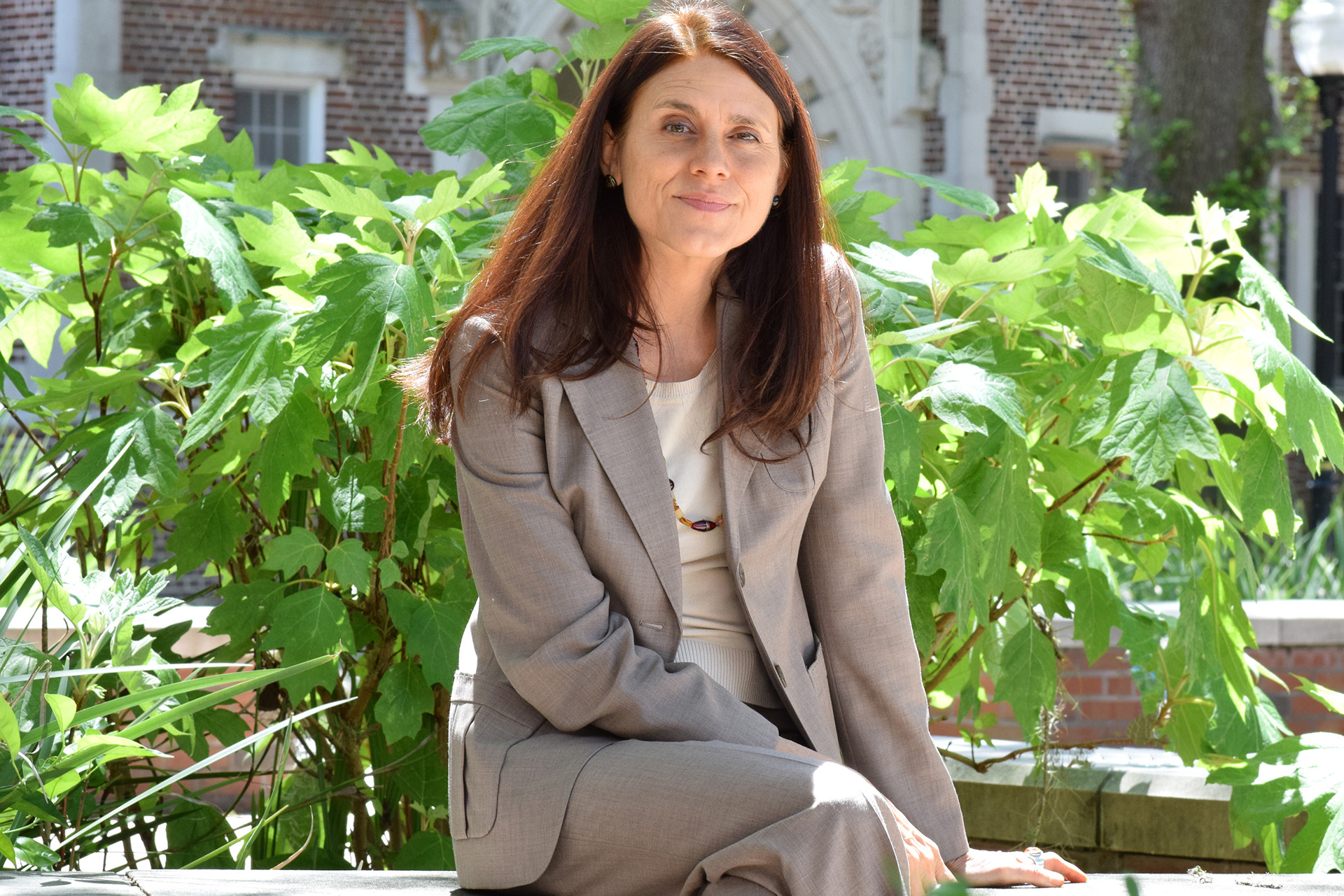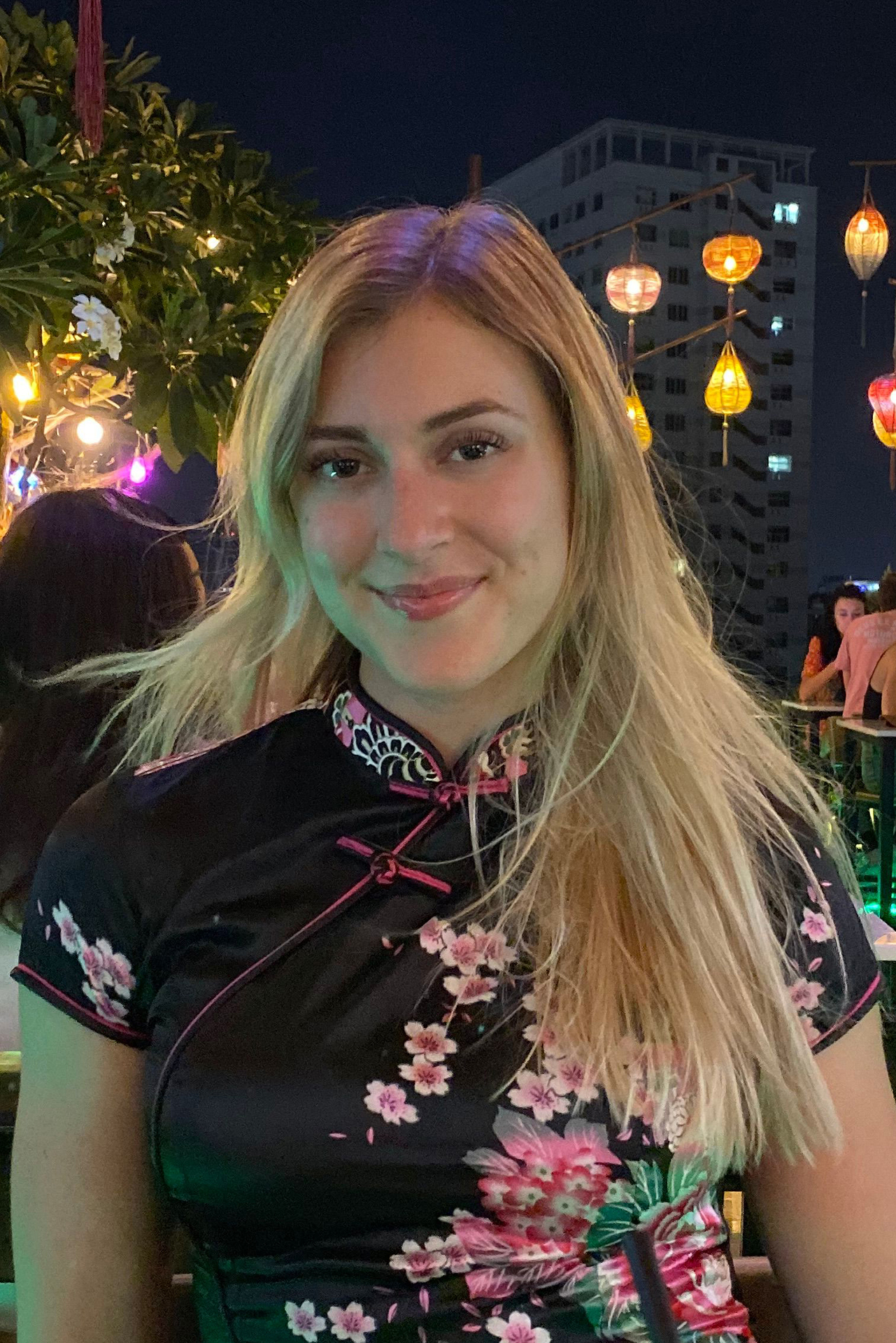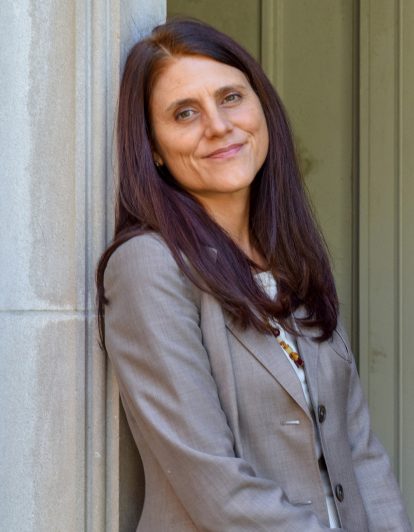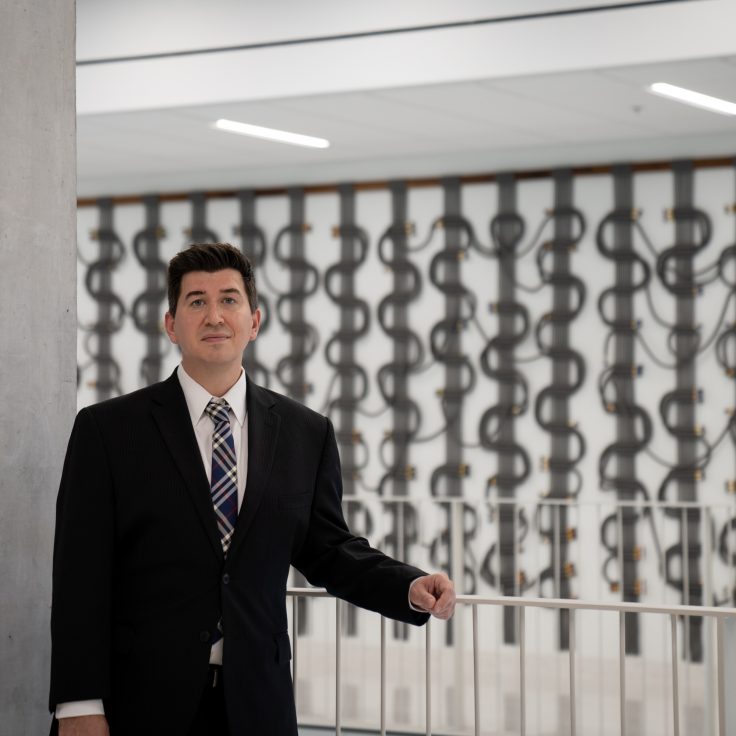
When Healing Requires More Than Medicine
Erin Prophet prepares pre-health students to address patients' spiritual needs
When Jesse Schmidt (Psychology ’21, MIB ’22) registered for a course in the fall of 2019 about spirituality and health care, she had no idea just how powerful the connection between the two could be.
She would soon find out firsthand. Schmidt worked for a “phone friend” service, talking with people across the country struggling with debilitating illnesses that keep them largely isolated. In conversations with a patient battling ALS, Schmidt put the skills she learned in the course to work as the patient confronted her own mortality. “We talked about her pains and existential questions — she wondered, in her view, why God was punishing her,” Schmidt said. “Her spiritual beliefs contextualized her understanding of her ALS diagnosis.” Schmidt supported her through these talks over the course of a year, until the patient passed away.

Now, as an applicant to medical school, Schmidt remains invested in practicing the same compassionate care in her future work as a physician. “I learned spirituality isn’t just some abstract concept, it’s an innate aspect of being human,” she said. “It’s a huge component of our well-being that is widely neglected.”
The shift in Schmidt’s mindset is exactly what lecturer Erin Prophet hopes to see.
Prophet pushes the boundaries of how students view the intersection between spirituality and Western medicine — expanding their horizons by exposing them to approaches that blend the two realms. Her Spirituality and Health Care course is a popular elective among pre-health majors, who enter the topic with curiosity.
“Students are bombarded daily with messages around religion, spirituality and mindfulness, but they often lack context,” Prophet said. “Religion can be a source of strength but it can also lead to crisis and struggle. Students need to develop a critical eye for claims about both religion and spirituality.”
I learned spirituality isn’t just some abstract concept, it’s an innate aspect of being human. It’s a huge component of our well-being that is widely neglected.
—Jesse Schmidt, Psychology ’21, MIB ’22
A more amorphous concept than religion, spirituality encompasses a broad sense of purpose or connection to something bigger than oneself. While spirituality comes through religion for many, others find it through meditation, prayer, music, art or harmony with nature.
Spirituality’s connection to health has been long overlooked in Western education — but a growing body of research shows that our physical, mental and spiritual well-being work in tandem. “The mind affects the body and the body affects the mind,” Prophet said. “So medicine can’t be blind to someone’s spiritual needs — or spiritual crisis, for that matter.”
As the health care industry in the United States becomes more focused on improving the quality of care, it’s important for providers to communicate clearly and understand patient needs. Health care providers limit their own success by ignoring patients’ beliefs. When spirituality is tended to, patients can make better sense of their condition, gain motivation in the recovery process and reach acceptance in the face of chronic or end-stage illness.
Prophet is heartened that many institutions are building programs that expose students to the human side of medicine: A 2021 study from researchers at Case Western Reserve University found 119 undergraduate medical or health humanities programs in operation across the nation, with more currently in development. At UF, Prophet’s course is just one of an increasing variety offered across campus providing a humanistic approach to medicine.
“It has become more widely recognized that it’s helpful for undergraduate pre-health majors to have some exposure to the literary, artistic, philosophical, historical and religious aspects of medicine — before they get into that grind of medical education, where they often don’t have the leisure to explore these topics,” she said.

Prophet offers a wealth of firsthand experience to draw upon — she has lived and moved between these realms her whole life. Prophet grew up in the inner sanctum of a controversial New Age religious sect called the Church Universal and Triumphant, which was often called a “cult” in the media. As the daughter of its founder Elizabeth Clare Prophet, she was exposed to many alternative spiritual viewpoints at a young age — her mother incorporated elements of Buddhism, Christianity and mysticism into her teachings.
Prophet eventually shifted away from the sect, but she has dedicated her career to unpacking religious experiences and narratives. As a scholar of religion, she also explores the relationship between medicine and spirituality. Prophet doesn’t just talk the talk — before receiving a PhD in religion, Prophet earned a master’s degree in public health with an epidemiology concentration and has published in the field of cancer epidemiology.
Now, Prophet explores the historical relationships between the Western biomedical model of health care and the transcultural aspects of alternative, holistic forms of medicine in her course. She also explores different models for decision-making in health care, from evidence-based to integrative and functional medicine. Prophet invites speakers from the local community to share a range of perspectives — acupuncturists, Chinese medicine experts and Christian Scientists have all graced her classroom. Group discussions and film viewings also help students examine the topics through a critical lens.
For the pre-health students who have completed Prophet’s course, the expertise offers a chance to stand out in a sea of competitive applicants seeking admission to medical school.
Christina Rozvodovskiy discovered a budding appreciation for holistic health care through Prophet’s course. The idea that a patient isn’t just a “machine to be fixed” resonated with the second-year student, double-majoring in biology and neuroscience with a minor in religion.
The course may have even changed her entire career trajectory — Rozvodovskiy is now considering studying osteopathic medicine instead of pursuing a medical doctorate. Osteopathic physicians receive the same training as medical doctors, but supplement it with a whole-person approach to healing. “This would allow me to learn about alternative medicines, such as herbs and daily practices, that can complement biomedical interventions,” she said.
It’s not presented with an expectation that I’m giving them eternal religious truths that will be applicable in all situations. I’m trying to give them enough understanding so that they can navigate the different cultures they may come across in their careers.
Erin Prophet, lecturer in the Department of Religion
No matter where her students go beyond graduation, Prophet equips them with the ability to interact sensitively with those who have differing views and beliefs — she hopes this may just give them the edge they need in an increasingly globalized job market.
“It’s not presented with an expectation that I’m giving them eternal religious truths that will be applicable in all situations,” Prophet said. “I’m trying to give them enough understanding so that they can navigate the different cultures they may come across in their careers.”
The COVID-19 pandemic has furthered the push for such values. “I think it’s important for aspiring health practitioners to be aware of the signs of spiritual struggle — especially at a time like this, during the pandemic, when so many people are dealing with loss, grief and bereavement in ways they haven’t had to on this level before,” Prophet said.
Norwegian exchange student Mathias Maxime Thoze believes the pandemic opened the door to increased awareness of the role of spiritual health in medicine. “One of the great things that you as a provider could give to people during the pandemic is the social and belonging part of the healing process, and I think that this is what many people felt that they lost during these times,” he said.
Thoze carried the lessons he learned back home with him to Norway. As a physical and mental health activist, Thoze was inspired to share aspects of spiritual health on his social media platforms. He’s been surprised by the high level of engagement in a largely secular nation. After graduation, Thoze plans to establish a therapeutic institute in Norway to provide medical, mental and spiritual support to patients.
Alumnus Matthew Thompson (Religion ’19) relies on what he learned in Prophet’s class daily. Much of his role as a case manager at Meridian Behavioral Healthcare involves developing continuing care plans for patients in the recovery process.
“As a provider who meets with patients who are often in crisis — having experienced a recent suicide attempt, drug overdose, or are mentally ill and their current view of their life is disoriented and obscured — having the education to provide therapeutic encounters with patients has made all the difference,” Thompson said.
The course inspired Thompson to develop a more personalized approach in his communications with patients and their families. He actively works to incorporate patients’ belief systems to orchestrate lifestyle change and promote healing. When healing isn’t possible, Thompson can also support people who are dying or bereaved by initiating difficult discussions from an informed, sensitive perspective.
Now pursuing his master’s degree in social work at Florida State University, Thompson is confident he’ll continue to carry the lessons learned in Prophet’s course forward as a future clinical social worker. True healing and wellness, he said, comes from seeing the whole patient, rather than only the disease.
“I try to continue to embody these practices with my clients,” he said, “so they experience a warm therapeutic encounter in contrast to the unfortunately many sterile and cold contacts they’ve had with so many other health care providers seeking to extract information and provide a treatment.”
Thompson’s holistic approach as an avenue for compassionate caregiving cuts to the core of Prophet’s goal. It’s a reminder that in the recovery process, science and spirituality can work together.


